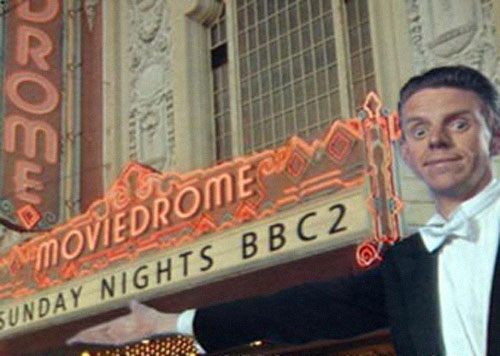Looking back on the near-distant past, I’m glad my parents never had enough money to go on holiday. How I loathed those who’d return to school after another summer wearing a shiny 2p tan, talking loudly about planes and sand and foreign ways, while I remained as English as the wet loaf in the gutter.
And not only did I never go on holiday as a kid, I was a part-timer when it came to school. Governed by an unsuccessful mixture of un-arsed, stunningly indifferent teachers waiting for retirement day and the new breed with their worryingly ineffectual new systems – all of them baffled and frightened by the introduction of the computer and the all-too-visible problem of past-caring kids entrenched in bad weed and bad cider and bad ideas. I choose not to bother, to look elsewhere…
It was at home, amid the interesting disarray of my older brother’s bedrooms, that I found my own teachers. Here, on damp weekdays when I should have been listening to a man with scant strands of lank hair prattle on lamely about gaseous exchanges, I confused myself with life-changing books by Martin Amis, William Burroughs, Charles Bukowski; filled my teenage head with a masterful barrage of imaginative images and ideas from ‘Adult’ comics like Hellblazer and Sandman – ideas and images that still inform my thoughts today; and discovered an unmarked video tape that provided me with one of the best teachers I ever had…
It could have gone either way. It could have been porn. Instead it was a recording of a cult movie programme entitled Moviedrome fronted by a cult-looking bloke with freakish hair and a biker jacket and big ears that looked like they were attempting to flee from a curious face that seemed to have more in common with animation than reality. The kind of guy who’d have got a lot of stick from where I came from for appearing a bit ‘weird’.
Within seconds, I liked him. That was/is the thing about Alex Cox: unlike the current crop of film ‘experts’ such as the wearisome Mark Kermode and the wealthy irritant that is Jonathan Ross – Cox was/is both informative and entertaining without being unlikeable. And like all good teachers, you get the instant feeling he’s in it for all the right reasons.
The programme itself followed a simple format. Every Sunday night on BBC2, in his own unique style, Cox would introduce a different movie, sometimes even a double-bill. But, to me, it was so much more than that; and I’m sure that goes for a lot of other people too. The fact that it went out in the summertime, when most other kids were being burdened with the indelible image of their Mums and Dads walking around half-starkers on a hellishly hot beach, made it all the more special because you felt as if you were the only one watching the thing. And then when school re-started, Moviedrome acted as an extraordinary defence of sorts against the ugly, powerful and very ordinary hold of school. Whenever I did go in on a Monday, I roved the dusty corridors with an imagined swagger that seems to come like breath to us Walter-Mitty-ites, all because of what I’d seen the night before.
True, not every movie was a special event. Some were just plain awful; their cult status, the one and only interesting thing about them. Sometimes you even started to question Cox’s integrity – is he egging this cult-thing just a little too much, coming on a bit too left-field?
But then the following week his intriguingly visual mouth would start jabbering on about Get Carter, or Lolita, or The Witchfinder General, or Badlands; films that now in the age of DVD and the internet are as readily available as the likes of, say Dirty Dancing, Ghost and Batman were back in the late 80s/early 90s.
In terms of film and the mass availability of certain films, it’s hard to stress the uniqueness of Moviedrome, and how the climate has changed so radically. At the heart of the programme lay a very democratic ideal that went against the whole notion of what it meant to be cult. It’s worth remembering that in 1988 when Cox began his one-man mission to educate a generation about the joys of lost or forgotten or once-derided films, cult wasn’t a mainstream concept. Similar to the mass proliferation of fashionista’s who have caught hold of the rock t-shirt market and strangled it lifeless, the idea of something being cult is about as unique as toast nowadays. In the same way that the geeks of the early 90s introduced computers and the internet to the mainstream, Alex Cox attempted to dispel an elitist ideal – the cult film – by sharing it with the viewing public.
In terms of cultural significance, we’re talking possibly one of the drabbest periods of British history here: ‘Uncool Britannia’ – Noel’s House Party, Challenge Anneka, Lovejoy; the pre Blur-ite suburbs trying to get a hang on the Sky dish… I can’t envision anybody wanting to align themselves with this period in the way that certain pockets of society align themselves to the late 60s or the late 70s Punk era or even the more recent Britpop era of 1994-1998. Like so many Moviedrome oddities, most of us have somehow managed to eradicate this period from our cultural memories and leaped straight from the late 80s of the Happy Mondays and The Stone Rose, straight into Oasis and Trainspotting. The notion of cult may as well cease to exist given the mass availability of, well, pretty much everything. Everything is on show – films, music, arse-cracks, spare tyres… There’s nowhere to hide, nowhere to secrete that which was once a dark diamond of obscurity; nowhere for teachers like Cox to discover gems for young outsiders with nothing to lose and a world of ideas to gain. And all of it in the near-distant past.
For all things Cox and Moviedrome visit www.alexcox.com where you can download Moviedrome Guides 1&2.
You can find his new book here:
X-Films: True Confessions of a Radical Filmmaker by Alex Cox



